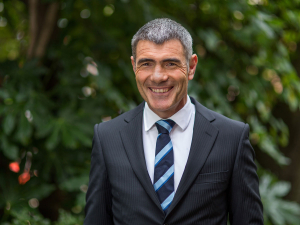Call it what you like -- water tax, royalty on water use or a water use charge -- it’s an unfair proposal, another ploy by the Government to charge its coffers at the expense of the country’s hardworking farmers.
Labour’s talk of a ‘royalty’ for irrigation water has put the farming sector on edge; the idea of a 10c/litre charge as proposed by the Greens is now more than a dark cloud on the horizon.
And if Jacinda Ardern wins the key to the top office in the Beehive next month she will be working with the Greens.
Farmers are terrified by the potential effects on farming families, rural communities and the entire economy.
Ardern says she would consult widely if she gained office, but she has already hinted that a royalty on water is coming; it may not be 10c/litre but would be close to that.
Farmers and irrigators are rightly demanding more information from Labour; they fear the devil could be in the detail. How could a water tax possibly be implemented in practice, given the differences in weather and water use across the country? It would be a complex administrative nightmare.
Irrigators are already indicating that the water charge proposed by Labour has the potential to affect every New Zealander.
The extra costs of a water tax would inevitably be passed on to consumers, meaning higher prices for dairy products, food, wine, beer and more. Are we going to penalise communities whose drier climate needs more irrigation?
Companies taking pristine New Zealand water and bottling it for export have raised the ire of environmentalists. Those opposed to such exports should push the Government for a tax on them.
A general levy on irrigation water makes no sense.
Farmers are opposed to any royalty on irrigation water, especially when it remains unclear what purpose it would serve other than collecting revenue.
Federated Farmers says its members are working hard to farm within the limits imposed by environmental standards and the desire by all New Zealanders – farmers included – to clean-up water quality hot-spots.
Adding an extra cost in the form of a water tax is a perverse incentive for farmers to intensify their activity, and deprives them of income, at worst putting them out of business and at best leaving them with less money to spend on environmental protection work.
And most dairy farmers already spend heavily on water reticulation, whose repairs and maintenance the farmer pays for.
Water is not free for farmers now; Labour’s proposed royalty will simply impose another cost.











